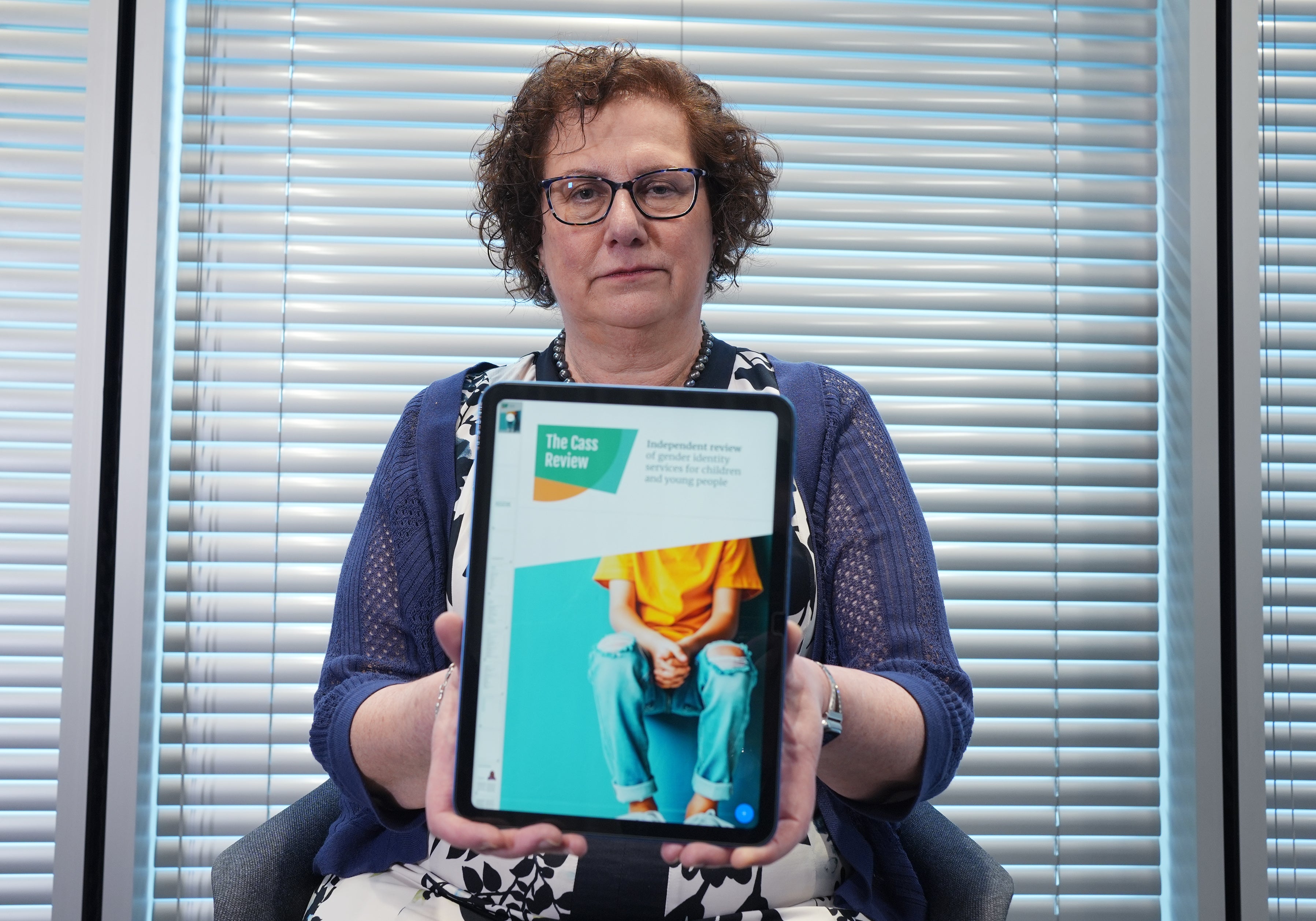
The number of children awaiting gender care in England and Wales has risen by 12% in a year, with 157 of those on the waiting list aged under 10.
Average waiting times have also grown to more than two years for a child to get a first appointment at a specialist NHS clinic.
There were 6,225 children on the national waiting list at the end of March – up from 5,560 at the same point a year earlier, data obtained by the PA news agency showed.
The British Psychological Society said the numbers show that “demand is currently outpacing supply” and warned it is “essential” for children to get professional care and support “before they reach crisis point”.
Health Secretary Wes Streeting last year branded waiting times “unacceptable”, acknowledging the “enormous distress” they can cause.
Responding to the latest figures, NHS medical director for specialised services Professor James Palmer said he understands it “can be really difficult” for children and their families waiting to be seen.
Two children’s gender hubs, led by London’s Great Ormond Street Hospital (Gosh) and Alder Hey Children’s Hospital in Liverpool, opened in April 2024.
This followed the closure of the Gender Identity Development Service (Gids) run by the Tavistock and Portman NHS Foundation Trust.
A third service has since opened Bristol while another is planned for the East of England “later this spring”, according to the Department of Health and Social Care (DHSC).
The aim is for there to eventually be up to eight specialist children’s gender clinics covering the seven NHS regions in England.
Of those on the national waiting list – which covers England and Wales because the latter does not have its own dedicated children’s gender clinic – 157 children were aged under 10, according to a Freedom of Information request by PA.
Fewer than 10 children were aged under five years old, NHS England said, adding that it would not give an exact number as this could breach confidentiality because of people being potentially identifiable in smaller groups.
There is no minimum age requirement for gender care, with the NHS previously saying they want to ensure parents of very young children are given support where necessary.
Waiting times for a first appointment have also risen, to an average of 116 weeks at the end of March from an average of 100 weeks at the end of May last year.

Dr Roman Raczka, president of the British Psychological Society, said: “It is essential that children, young people and their families can access the professional care and support they need, before they reach crisis point.
“Demand is currently outpacing supply. This contributes to a range of broader challenges which face children and young people’s services that require further investment.”
Some 250 patients transferred from Gids have been seen by new services, and it is understood each of the new clinics is designed to see 25 patients a month.
Following the Cass Review last year which concluded children had been let down by a lack of research and evidence on medical interventions in gender care, NHS England announced a new plan which requires new referrals into the clinics to have been seen by a GP and mental health specialist or paediatrician first.
Guidance expected to be published later this month will see the health service move away from a “medical model” in favour of a “holistic” approach to children’s gender care, as per recommendations from the Cass Review.
According to leaked plans reported last month, children who have gender dysphoria will be tested for neurodevelopmental conditions including autism and ADHD (Attention-Deficit/Hyperactivity Disorder).
Prof Palmer said: “We know it can be really difficult for children and young people and their families who are waiting to be seen by our new holistic gender services, and that’s why it has been so important that we put a new system in place to ensure that, while they’re waiting, they can access mental health support if they need it.
“The NHS is now almost halfway through its planned expansion of regional services, and we are seeing significantly fewer referrals as children are first assessed by paediatric or mental health experts and provided with care in NHS services that are more appropriate to their needs.”
Puberty blockers are not prescribed on the NHS to children for the treatment of gender dysphoria, after a ban last year was made permanent in December with the agreement of devolved governments across the UK.
Plans remain in place to set up a clinical trial into the use of puberty blockers this year, although no patients have yet been recruited while ethical and regulatory approval is awaited.
A DHSC spokesperson said: “We are working with NHS England to reform children’s gender services in line with the recommendations from the Cass review, to provide children with timely, holistic support.
“We’ve opened three new children and young people’s gender services with a fourth anticipated to open later this spring. These new services will increase clinical capacity and reduce waiting times, so patients can be seen sooner and closer to home.”
Unite members accept 8% NHS pay deal
Top doctor warns government ‘neglecting’ old people spending days on A&E trolleys
A&E patients needlessly die every week while waiting for hospital beds
Children waiting two years for gender care as numbers trapped on waiting lists soar
Aid groups hit back over development minister’s ‘charity’ comments
The UK economy grew by 0.7% between January and March, new figures show







